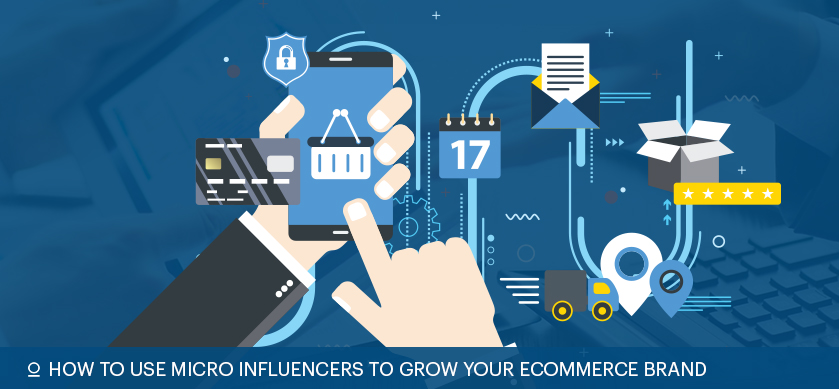How To Use Micro Influencers To Grow Your Ecommerce Brand
Influencer marketing campaigns are designed to raise brand awareness, drive engagement and boost conversions. Applying these strategies to an e-commerce brand, as a way to generate sales, is a natural fit. There are a number of best practices to keep in mind when leveraging micro influencers for your ecommerce brand.
Having a micro influencer endorse your product is a great to way to reach and convert new audiences. Almost 40% of Twitter users claim to have made a purchase, as a direct result of an influencer’s tweet. We’re now seeing marketers partnering with multiple micro influencers at once, as of of amplifying the advertising efforts of their e-commerce products.
1) Have a referral system
Given that influencers are connecting with their audiences online, it makes it easy to direct and track traffic from an influencer’s social media platform, to your product’s e-commerce store. Provide your micro influencer with their own unique URL by using link shortener websites like bitly. You can then incentivize your influencer to refer new customers using a tracked referral and rewards system, allowing your micro influencer to further benefit from the partnership.
For example, if your micro influencer successfully converts five new customers to making a purchase from your e-commerce website, you can offer the influencer a percentage of the sales or a bonus on your initial partnership agreement.
2) Offer discount codes or giveaways
Provide your micro influencer with a discount code or offer that is exclusively for their audience. Influencers are more likely to work with your brand if they can provide value to their audience in the process of the partnership. Having discounts and exciting giveaways, allows your micro influencer to get creative and run campaigns with their fans that can further the engagement and discussion around your e-commerce brand.
For example, create a discount code using the influencer’s name or social media handle, that the customer can redeem at checkout.
3) Leverage product launches
Using micro influencers for your ecommerce brand is a great way to create hype around your new products. By giving your micro influencer early access to unreleased products, this can further incentivize them to agree to a partnership with your brand. Not only will they appreciate being gifted your brand’s products as a form of payment, providing the micro influencer with exclusive access can further the influencer’s mission to become a thought leader, or VIP, within the industry your e-commerce brand is operating.
Regardless of the marketing strategies and techniques you incorporate into your influencer marketing partnership, it’s critical that you’re working with relevant micro influencers. Your campaign won’t drive sales to your e-commerce store unless you’re reaching the people who have the capacity to care.
- Determine the ideal customer profile for your influencer marketing campaign and create their online persona.
- Work with micro influencers who have attracted an audience that aligns with your ideal customer. Don’t assume the influencer’s demographics will be the same as their followers.
- Ensure the quality of your micro influencers’ content is on par with your brand’s expectations and monitor the engagement of their existing posts.
- Avoid working with micro influencers who have previously partnered with your competition, or companies that go against your e-commerce brand’s mission or values.
When executed thoughtfully and strategically, micro influencers can be extremely effective in driving sales to your e-commerce website.

